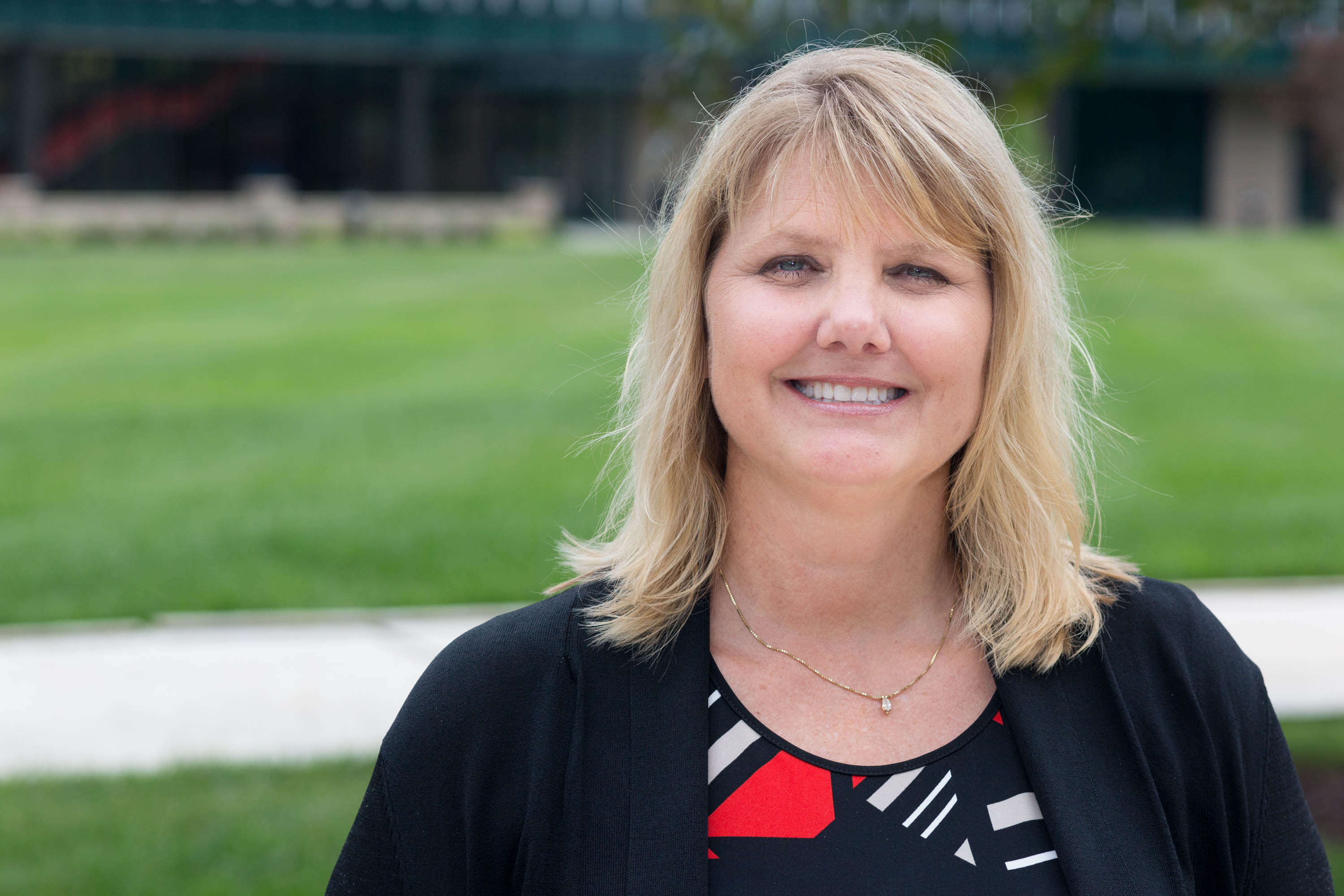Mascheal Schappe, EdD, who assumed the role of dean for Maryville University’s School of Education on June 1, 2017, has always wanted to be in the classroom.
“As soon as I was old enough to talk and my brother was old enough to listen, I wanted to be a teacher,” she says. “When I was in sixth grade, I was asked to help tutor fourth graders. When I was in high school, I was asked to start a peer-tutoring program. When I was in college, I was asked to teach a prepatory college algebra course for struggling students and those who had not been in school in a while. I grew up teaching others.”
Schappe has been with Maryville for 10 years in a variety of roles. She was associate dean of education before being named to the top spot, and is also a former associate professor of education. Her role as professor included math education and educational leadership advanced research. She was a sixth-grade classroom teacher and elementary school principal prior to joining Maryville’s faculty.
With a strong background in math education and a passion for technology, one of Schappe’s most important goals is to ensure graduates feel comfortable with technology, as well as know how to utilize it in order to maximize learning in their own classrooms.
“The amount of information at your fingertips can be a game changer for what’s going on in the classroom,” she says. “If you use technology well, very powerful things can happen.”
What’s your elevator pitch to someone considering a career in education?
I tell them that it is absolutely one of the most rewarding fields to be in, hands down. I have served in 13 different roles in this field; classroom teacher, elementary principal, grant coordinator, education consultant, and professor to name a few. I have found every one of them rewarding.
Your background is in math, so STEM education – science, technology, engineering and math – must be an important focus. How do you address that in the School of Education?
Since Maryville launched Digital World, our 1:1 iPads program, our faculty have all actively pursued their own learning on how best to incorporate iPads into their classrooms in order to increase student engagement, deepen students’ understanding of material and personalize learning experiences. Our goal is to model best teaching practices as we prepare future teachers, as well as help our graduates stand out among their peers when searching for that first teaching position.
In addition to iPads, we incorporate a variety of other technology into our courses for this very same reason. Our students can navigate smartboards, smartboard software, active boards, data systems such as CANVAS, chrome books as well as a large assortment of iPad tools and apps. We also have a STEM certificate program, where area PK – 12 teachers as well as our upper level pre-service students can take courses on campus in the summer.
Historically, girls have been told they don’t do well in math. Did you run into that prejudice?
That has not been my experience. I was fortunate enough growing up to be surrounded by strong women who didn’t believe it, either. I am so thankful for this, as math has opened many doors for me over the last 28 years. When I graduated from college, I was certified in elementary education, but also had a certificate in middle school math. That combination turned out to be unique among my peers. I was offered several interviews and positions rather quickly. My master’s degree in teaching contained a concentration in mathematics and computers. This along with my teaching experience helped me secure the project coordinator position for $3.5 million in math education grants over the last 12 years. This background in math, combined with my experience as a principal, is what brought me to the Educational Leadership Program here at Maryville, shepherding students through the methodology, results and analysis of their capstone projects. That position eventually grew to include math education for our pre-service students.
And the increasing use of technology in the classroom makes STEM skills all the more important, correct?
Technology cannot replace the teacher and it certainly cannot take care of the social and emotional needs of students, which they need in order to reach their maximum potential. However, used as a pedagogical tool it can be incredibly powerful. I believe the use of technology, if used correctly, can increase student engagement, deepen students’ conceptual understanding, increase personalization and accelerate learning.
How is Maryville’s approach to teaching educators different from what other schools do?
We keep our class sizes small, so students get a lot of faculty attention, and if they are struggling, we offer resources to help. We require twice as much practicum experience as what the state requires, and we are known for our high-quality field experiences.
How will you judge the success of your tenure as dean?
There are a number of ways to measure success. I will judge my success as dean by determining if we can show evidence that we’re contributing to student success from kindergarten all the way through to the university level, students are achieving at a higher level and we have a higher number of students coming to college, and if we see a larger number of our students accepting jobs in diverse areas.
